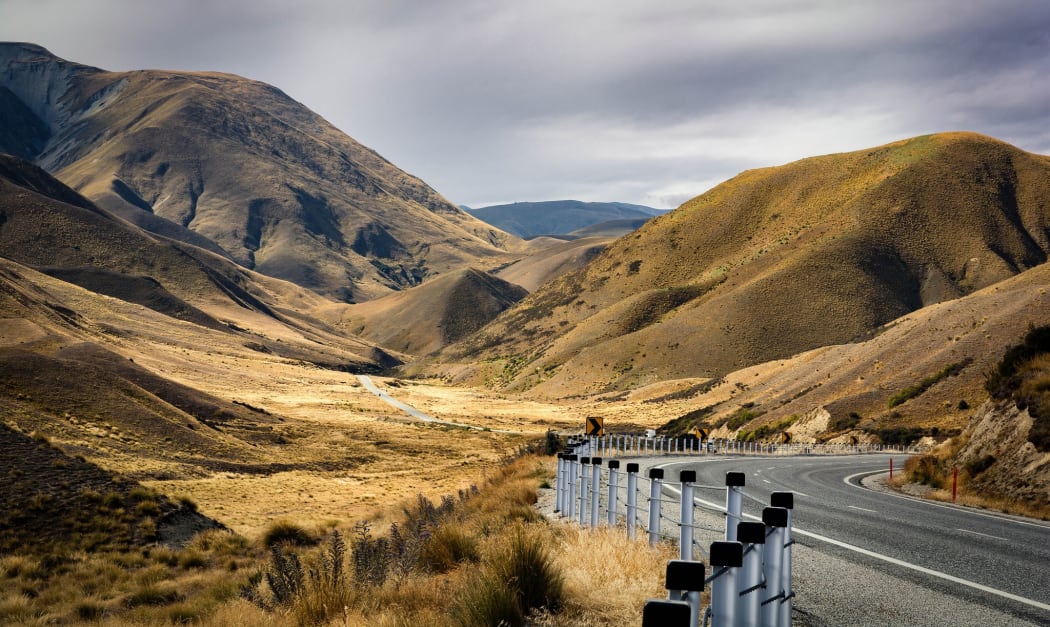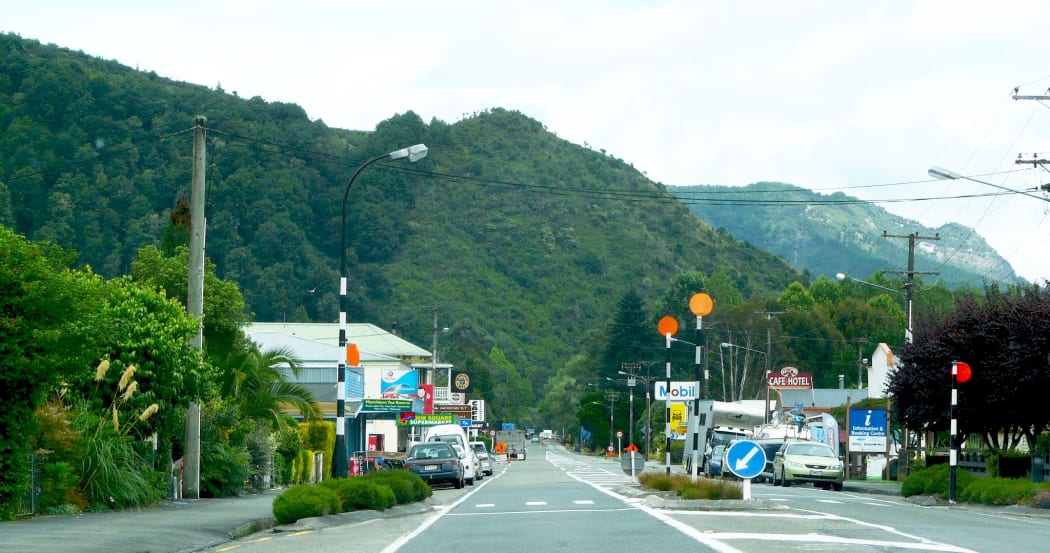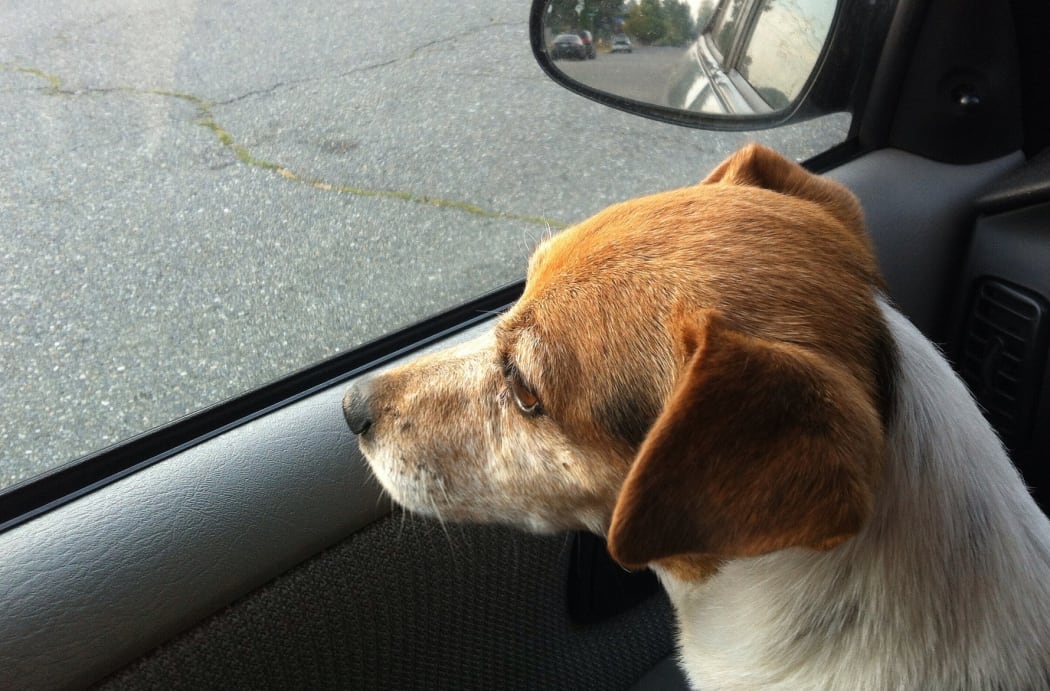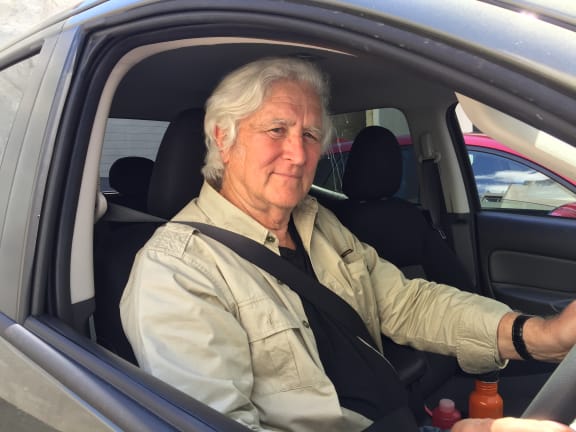We build our roads out of dreams, mostly
John Bluck explores the ways of the road in this third of a series about the place roads have in New Zealand's history, consciousness and identity.

The Lindis Pass Photo: Flickr / Kal
From the talk
We build our roads out of a mix of shingle, cement, bitumen and dreams. Mostly dreams.
They are as much playgrounds as commuter tracks, rites of passage and proving grounds for fashion, fame and personal advancement as they are ways of getting to work on time.
When I was nine years old, our family of five drove from Hawkes Bay to Owen River near Murchison and back, in a Ford Prefect. Quite how five of us fitted in, I still can’t work out, with our suitcases and a sack of potatoes as well. Seriously. There was a potato famine in the south island at the time.

Murchison Photo: Flickr / Jane Nearing
The trip took forever, the weather was awful. But when we got home safely I felt our standing in the world had increased by a metre or two.
Just as I did again, much later, after driving across America, and then from Boston to Florida, non-stop, with a couple of friends. It was a rite of passage for all who made the journey and fuelled stories that we romanticised for ever after.
I completely understand the fascination that thousands of Grey Nomads draw from wandering around Australia in campervans, many of them having sold up their family homes to drive forever into the sunset.
Roads do that to you. They promise if you keep going you’ll end up somewhere better. Not necessarily at the end of the journey but all along the way. The adventure lies not in finally arriving somewhere, but what happens en route that constantly takes you by surprise. Roads can give you, if you let them, the time of your life.

The road to Lake Tekapo Photo: Flickr / Paul Carmona
Which is why the phrase “road trip” has such resonance, with young and old alike. In an old combi with a mattress in the back, off around the surf beaches, or a fancy camper van with hot water, indoor plumbing and satellite TV to make it feel like home when you park at night, in the middle of nowhere.
The attraction offered by the road is more visceral than rational. You feel it long after you’ve stopped trying to understand it. The road if you drive it long enough becomes a part of you. Especially for motorcyclists who have to put their bodies on the line and into each corner and trust the camber of the road and the angle of their leaning in to get around safely.
It’s a very physical thing, balanced on a knife edge, just as the professional riders do when they corner at twice the speed I’d ever dare, their leather bound knee grazing the track.
Truck drivers also know about this feel of the road that is transmitted into the cab through the balance of the load behind.
My father taught us to drive as though a horse was standing on the tray behind us.
I think of him still (and the imaginary horse) as I watch my Jack Russell on the passenger seat alongside me, leaning into the corner as we drive.

Photo: Flickr / Gexydaf
More reading
Other parts of the series
Roads Run Through Us Episode 1
Roads Run Through Us Episode 2
Roads Run Through Us Episode 4
Roads Run Through Us Episode 5
Roads Run Through Us Episode 6
About the speaker

Photo: RNZ / Paul Bushnell
John Bluck
John Bluck was born in Hawkes Bay, educated at Napier Boys’ High School, the University of Canterbury and the Episcopal Theological School in Cambridge Massachusetts. He's had interwoven careers in journalism and ministry for the Anglican Church, spending time as a reporter in Boston, USA.
A former journalism tutor and chaplain at the Wellington Polytechnic, he has edited a number of publications including the World Council of Churches’ "One World" magazine in Geneva.
His ecclesiastical career started in Gisborne and took him to posts as varied as Director of Communications at the World Council of Churches, Professor of Pastoral Theology and Communication at Dunedin's Knox Theological Seminary, and Dean of Christchurch Cathedral. He was the 14th Anglican Bishop of Waiapu.
After resigning his See in 2008, he left moved to a rural setting near Warkworth from which he has continued to write and publish.

